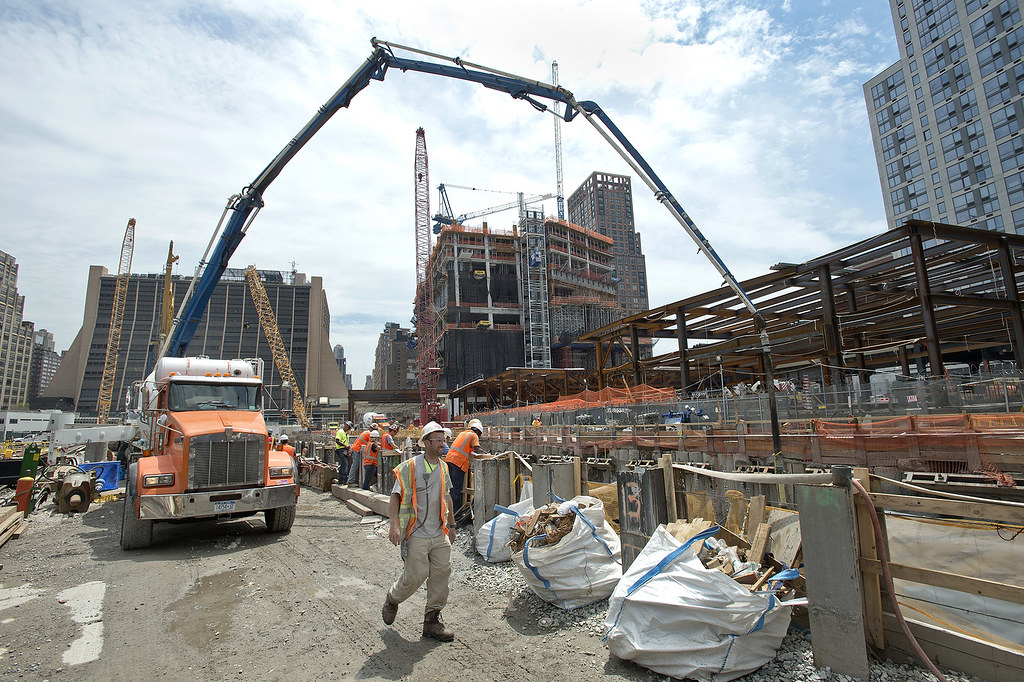Starting a construction company can be an exciting venture for aspiring entrepreneurs in the construction industry. However, before embarking on this entrepreneurial journey, it is crucial to have a deep understanding of the costs associated with starting a construction company. Proper planning, budgeting, and financial management are essential for the long-term success of any construction business. In this article, we will explore in-depth the various costs involved in starting a construction company, including research and planning, legal and regulatory requirements, startup costs, financing options, budgeting, and financial management.
Research and Planning
The first step in starting a construction company is conducting thorough research and planning. This includes understanding the market demand, competition, and opportunities in the construction industry. Conducting a market analysis can provide insights into the target market, customer preferences, and competitors’ strategies.

This research can help in formulating a comprehensive business plan, which serves as a roadmap for the construction company’s success. A well-prepared business plan includes financial projections, including startup costs, ongoing expenses, revenue projections, and cash flow analysis. The business plan should also outline the company’s goals, objectives, marketing strategies, and operational plans.
Legal and Regulatory Requirements
Another crucial aspect of starting a construction company is understanding and complying with the legal and regulatory requirements. This includes registering the business as a legal entity with the appropriate authorities, such as the local or state government, and obtaining the necessary licenses and permits for construction operations. The requirements may vary depending on the location and type of construction company, such as general contracting, specialty contracting, or residential versus commercial construction.
It is essential to research and understand the specific legal and regulatory requirements in the area of operation and ensure compliance to avoid potential penalties or legal issues. Additionally, obtaining insurance coverage, such as general liability insurance, workers’ compensation insurance, and professional liability insurance, is crucial to protect against risks and liabilities associated with construction operations.
Startup Costs
Starting a construction company requires significant upfront investment in various areas. Understanding the startup costs involved is critical for proper budgeting and financial planning. Some of the common startup costs for a construction company include:
- Land or Office Space: Depending on the type of construction company, acquiring land or leasing office space may be necessary. The cost of land or office space can vary significantly depending on the location and size of the business. Purchasing or leasing land or office space should be carefully considered based on the business plan and budget.
- Equipment and Tools: Construction companies require a wide range of equipment and tools, including construction machinery, vehicles, hand tools, power tools, safety equipment, and other specialized tools. The cost of acquiring or leasing equipment and tools can be substantial and should be included in the startup costs.
- Employee Hiring and Training: Hiring and training employees is a significant expense for a construction company. Labor costs can vary depending on the skill level and experience of the employees. Properly budgeting for labor costs, including wages, benefits, and training expenses, is crucial for successful startup operations.
- Office Infrastructure: Setting up office infrastructure is essential for the smooth functioning of a construction company. This includes computers, software, phone lines, internet, office furniture, and other office supplies. The cost of setting up office infrastructure should be factored into the startup costs.
- Marketing and Advertising Expenses: Marketing and advertising are crucial for promoting a new construction company and attracting clients. This includes website development, branding, promotions, print materials, and other marketing initiatives. The cost of marketing and advertising should be included in the startup costs and budgeted accordingly.
- Miscellaneous Costs: There may be other miscellaneous costs associated with starting a construction company, such as legal and accounting fees, business incorporation fees, and initial inventory or supplies costs. These costs should be carefully accounted for and included in the overall startup costs of the construction company.
Financing Options
Once the startup costs are identified, the next step is to explore financing options to fund the construction company’s initial investment. Some common financing options for construction companies include:
- Personal Savings and Investments: Many entrepreneurs use their personal savings or investments to fund the startup costs of their construction company. This may include using personal savings, retirement funds, or other investments as a source of capital.
- Business Loans: Construction companies can also obtain business loans from banks, credit unions, or other financial institutions. Business loans may require collateral and have varying interest rates and repayment terms, so it is essential to carefully research and choose the right loan option that aligns with the construction company’s financial goals and capabilities.
- Investors or Partners: Construction companies can seek investors or partners who are willing to invest capital in exchange for equity ownership in the company. This option can provide additional capital and expertise, but it also involves sharing ownership and profits with the investors or partners.
- Crowdfunding: Crowdfunding has become a popular financing option for startups, including construction companies. Crowdfunding involves raising capital from a large number of individuals, typically through online platforms, in exchange for rewards or equity. It requires a compelling business idea and marketing strategy to attract potential investors.
Budgeting and Financial Management: Proper budgeting and financial management are crucial for the long-term success of a construction company. Once the startup costs are funded, it is important to create a budget that includes ongoing expenses, revenue projections, and cash flow analysis. Here are some key considerations for budgeting and financial management:
- Ongoing Expenses: Construction companies have ongoing expenses that need to be budgeted for, such as rent or mortgage payments, utilities, insurance premiums, payroll expenses, supplies, maintenance, and other operational costs. It is important to accurately estimate and budget for these ongoing expenses to ensure smooth operations.
- Revenue Projections: Construction companies need to forecast their revenue projections based on the market demand, pricing strategies, and project pipeline. Revenue projections should be realistic and aligned with the business plan and financial goals of the company.
- Cash Flow Analysis: Cash flow is critical for the day-to-day operations of a construction company. Proper cash flow analysis involves monitoring the inflow and outflow of cash, managing accounts receivable and payable, and maintaining adequate working capital. This helps in ensuring timely payments to vendors, employees, and other expenses, and avoids cash flow gaps that can affect operations.
- Financial Reporting and Analysis: Regular financial reporting and analysis are essential to track the financial performance of the construction company. This includes preparing financial statements, analyzing financial ratios, monitoring key performance indicators (KPIs), and making data-driven decisions based on financial insights.
Conclusion
Starting a construction company requires careful planning, budgeting, and financial management to ensure long-term success. Understanding the various costs involved, such as research and planning, legal and regulatory requirements, startup costs, financing options, and budgeting, is critical for aspiring entrepreneurs in the construction industry. Properly estimating and budgeting for startup costs, exploring financing options, and implementing sound financial management practices are crucial steps for a construction company’s success. By taking these steps, entrepreneurs can set a solid foundation for their construction company and navigate the challenges of the construction industry with confidence.











